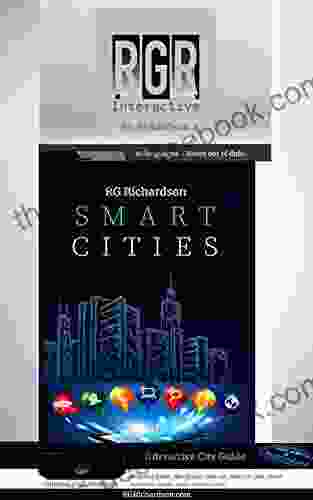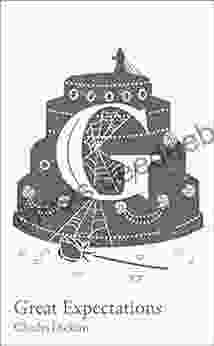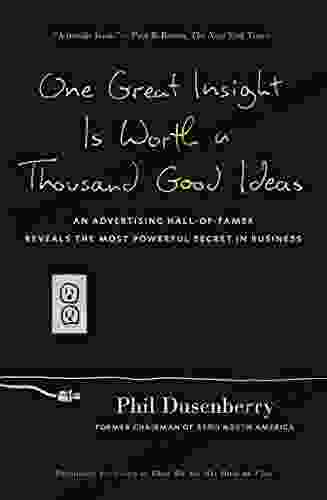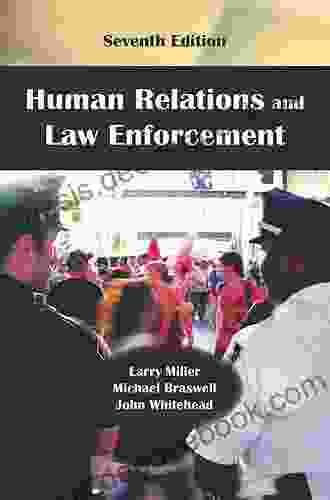Exploring the Interplay between Human Relations and Law Enforcement: Ensuring Equitable and Respectful Policing Practices

The relationship between human relations and law enforcement is a critical and complex one, with the potential to shape the quality of life for individuals and communities as a whole. When law enforcement agencies prioritize building strong human relations, they can create environments of trust, understanding, and respect, which in turn foster safer and more equitable societies.
4.6 out of 5
Building Trust through Effective Communication
Effective communication is the cornerstone of positive human relations. Law enforcement officers should strive to engage with the communities they serve in a respectful and approachable manner, using clear and understandable language. Active listening, empathy, and transparency can help build trust and create a foundation for productive dialogue.
Promoting Understanding through Cultural Sensitivity
Cultural sensitivity is essential for fostering understanding and breaking down barriers between law enforcement and diverse communities. Officers should be trained to recognize and appreciate cultural differences, including language, customs, and beliefs. By understanding the perspectives and experiences of those they serve, officers can better tailor their interactions and build bridges with communities.
Addressing Implicit Bias and Promoting Diversity
Implicit bias, or unconscious stereotypes, can unknowingly influence police behavior and decision-making. To address this issue, law enforcement agencies should invest in training programs that raise awareness of implicit bias and provide strategies for mitigating its effects. Additionally, fostering diversity within law enforcement ranks can improve cultural competence and promote a more representative and inclusive force.
Community Policing: Building Partnerships for a Safer Future
Community policing models emphasize collaboration between law enforcement and the communities they serve. By working together with neighborhood organizations, faith-based groups, and other community stakeholders, police departments can address local concerns, build trust, and increase transparency. Community policing initiatives can also help reduce crime rates and improve overall community well-being.
Procedural Justice and Equitable Treatment
Procedural justice refers to the fairness and impartiality of police procedures. Law enforcement agencies should strive to ensure that all citizens are treated with dignity and respect, regardless of their race, ethnicity, gender, or background. Officers should follow established protocols, provide clear explanations for their actions, and be accountable for their conduct.
Technology and Human Relations: Striking a Balance
While technology can enhance law enforcement capabilities, it is crucial to balance its use with human relations principles. Officers should prioritize personal interactions over excessive reliance on technology. Body cameras and other recording devices can provide valuable evidence but should be used judiciously to maintain trust and minimize privacy concerns.
The relationship between human relations and law enforcement is a delicate and ever-evolving one. By prioritizing trust-building, cultural sensitivity, diversity, community partnerships, procedural justice, and ethical use of technology, agencies can create a more equitable and respectful policing environment. This, in turn, leads to safer, more harmonious communities where all citizens feel valued and protected.
References
4.6 out of 5
Do you want to contribute by writing guest posts on this blog?
Please contact us and send us a resume of previous articles that you have written.
 Book
Book Novel
Novel Page
Page Chapter
Chapter Text
Text Reader
Reader Paperback
Paperback E-book
E-book Newspaper
Newspaper Sentence
Sentence Shelf
Shelf Glossary
Glossary Foreword
Foreword Preface
Preface Synopsis
Synopsis Manuscript
Manuscript Scroll
Scroll Tome
Tome Bestseller
Bestseller Classics
Classics Autobiography
Autobiography Memoir
Memoir Reference
Reference Encyclopedia
Encyclopedia Dictionary
Dictionary Thesaurus
Thesaurus Librarian
Librarian Catalog
Catalog Card Catalog
Card Catalog Archives
Archives Periodicals
Periodicals Scholarly
Scholarly Lending
Lending Reserve
Reserve Journals
Journals Interlibrary
Interlibrary Study Group
Study Group Book Club
Book Club Theory
Theory Textbooks
Textbooks Danae Little
Danae Little Jean Pierre Chavoin
Jean Pierre Chavoin Teresa Maria O Hara
Teresa Maria O Hara Chris Neil
Chris Neil Barry Parr
Barry Parr Jason Fruchter
Jason Fruchter Casi Mclean
Casi Mclean Yinglan Tan
Yinglan Tan Shelley Fishel
Shelley Fishel James George Frazer
James George Frazer Rebecca Tinkle
Rebecca Tinkle Scott Wilson
Scott Wilson Mary Jo Pollman
Mary Jo Pollman Mary Lou Roberts
Mary Lou Roberts Dick Strawbridge
Dick Strawbridge Sheila Burnford
Sheila Burnford Jim Benson
Jim Benson A B Guthrie
A B Guthrie Mark Bossingham
Mark Bossingham Elisa Gordon
Elisa Gordon
Light bulbAdvertise smarter! Our strategic ad space ensures maximum exposure. Reserve your spot today!

 Graham BlairEmbark on an Enchanting Journey with Lavita: Exploring the Worlds of Owls,...
Graham BlairEmbark on an Enchanting Journey with Lavita: Exploring the Worlds of Owls,...
 Thomas PowellUnveiling the Treasures of America: Explore Multi-Language City Guides in...
Thomas PowellUnveiling the Treasures of America: Explore Multi-Language City Guides in... William PowellFollow ·7k
William PowellFollow ·7k Jack ButlerFollow ·2.2k
Jack ButlerFollow ·2.2k Dale MitchellFollow ·12.7k
Dale MitchellFollow ·12.7k Grayson BellFollow ·13.7k
Grayson BellFollow ·13.7k Chadwick PowellFollow ·9.6k
Chadwick PowellFollow ·9.6k Arthur MasonFollow ·16k
Arthur MasonFollow ·16k Amir SimmonsFollow ·17k
Amir SimmonsFollow ·17k Colt SimmonsFollow ·11.9k
Colt SimmonsFollow ·11.9k

 Russell Mitchell
Russell MitchellGCSE Set Text Student Edition: Collins Classroom Classics...
The GCSE Set Text Student Edition: Collins...

 Ralph Turner
Ralph TurnerSix Sigma Lean Green Belt Training for Beginners with...
What is Six...

 Travis Foster
Travis Foster10 Life-Changing Lessons I Learned When I Was Single
Being single can...

 Jermaine Powell
Jermaine PowellOne Great Insight Is Worth a Thousand Good Ideas
In the competitive and...
4.6 out of 5












